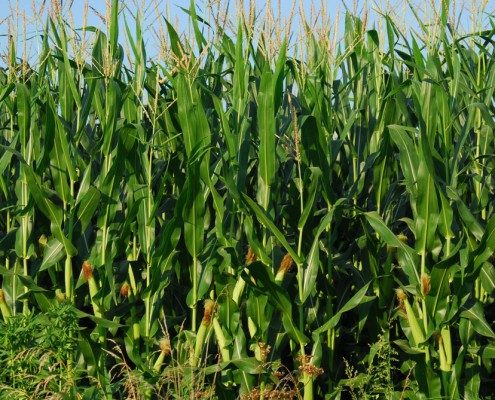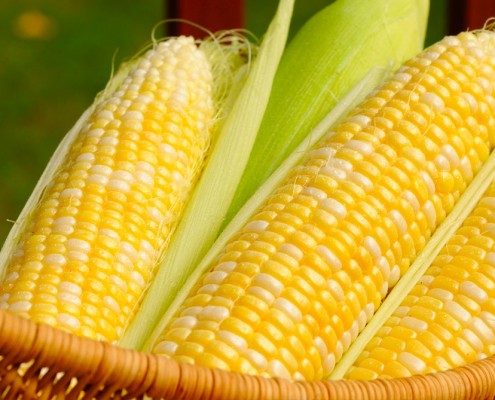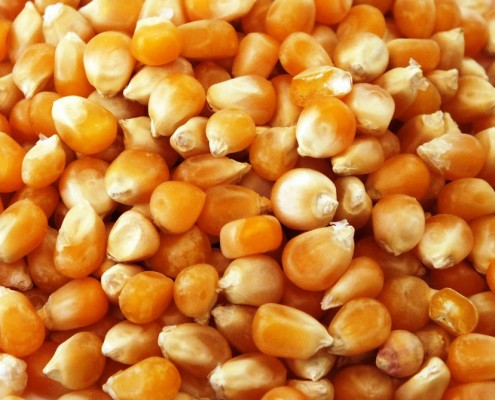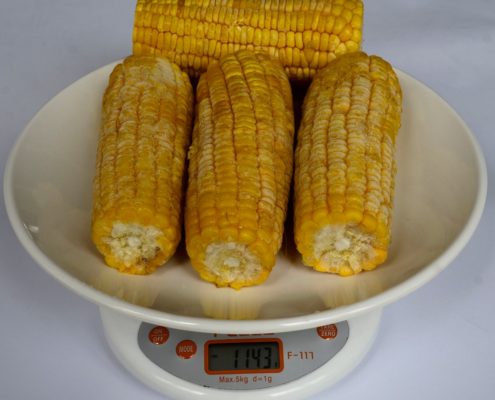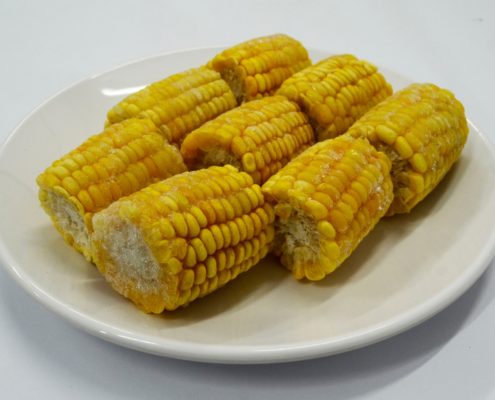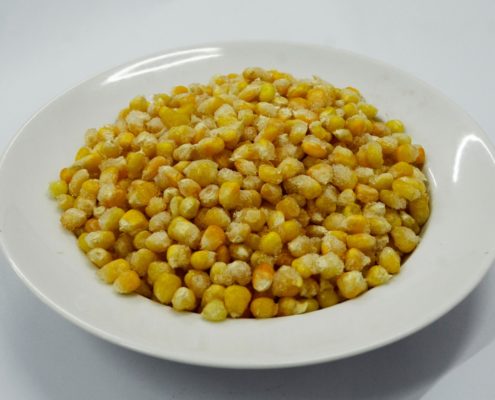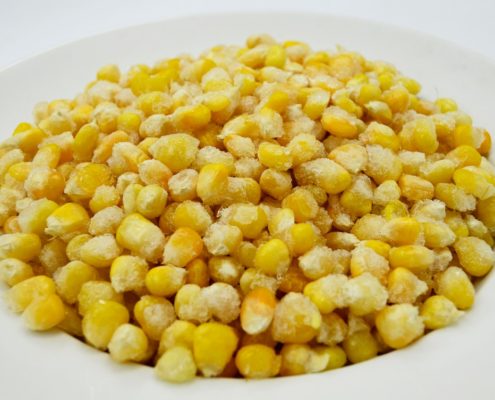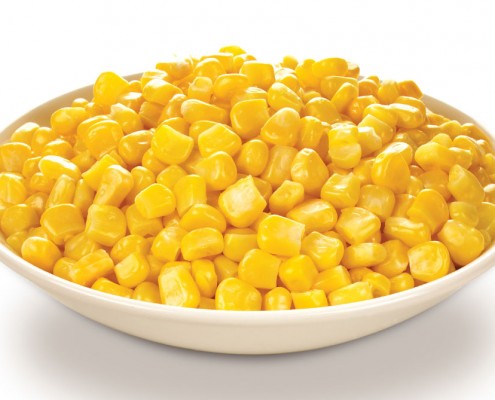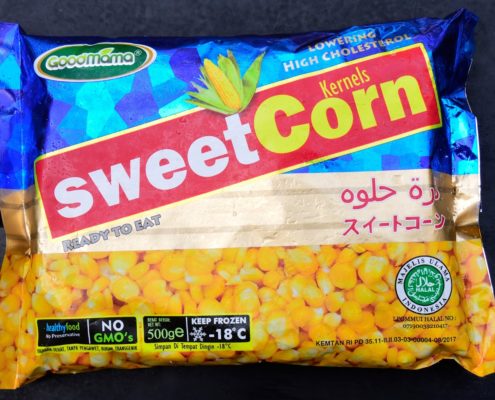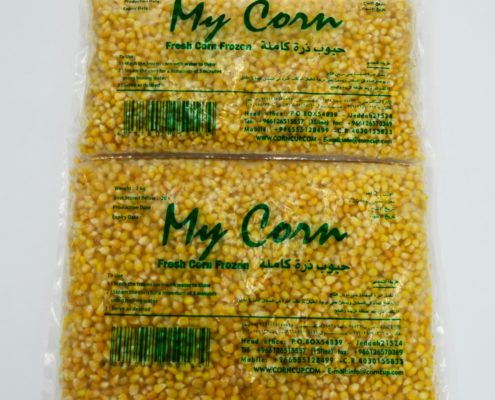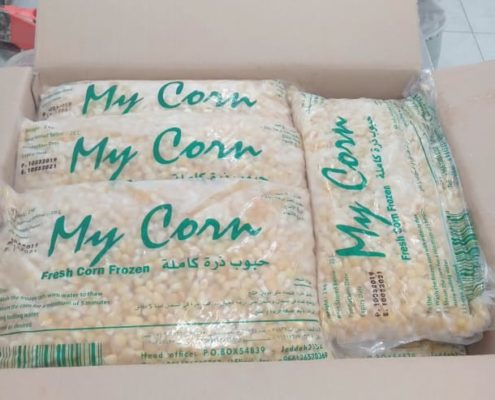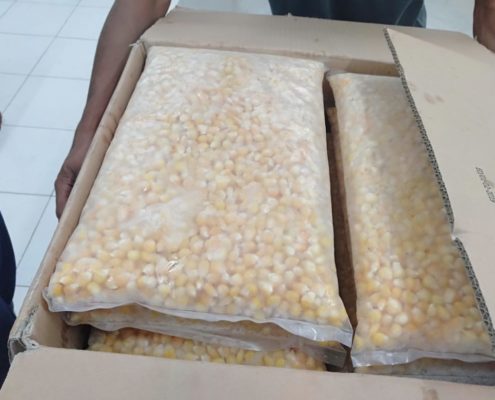Maize, known in some English-speaking countries as corn, is a large grain plant domesticated by indigenous peoples in Mesoamerica in prehistoric times. The leafy stalk produces ears which contain the grain, which are seeds called kernels. Maize kernels are often used in cooking as a starch. The six major types of maize are dent, flint, pod, popcorn, flour, and sweet.
In a 100 g serving, maize kernels provide 86 calories and are a good source (10-19% of the Daily Value, DV) of the B vitamins, thiamin, niacin, pantothenic acid (B5) and folate (right table for raw, uncooked kernels, USDA Nutrient Database). In moderate DV amounts, they also supply dietary fiber and the essential minerals, magnesium and phosphorus whereas other nutrients are in low amounts (right table).
Maize is the subject of genetic engineering research to improve levels of carotenoids, such as provitamin A, beta-carotene.

